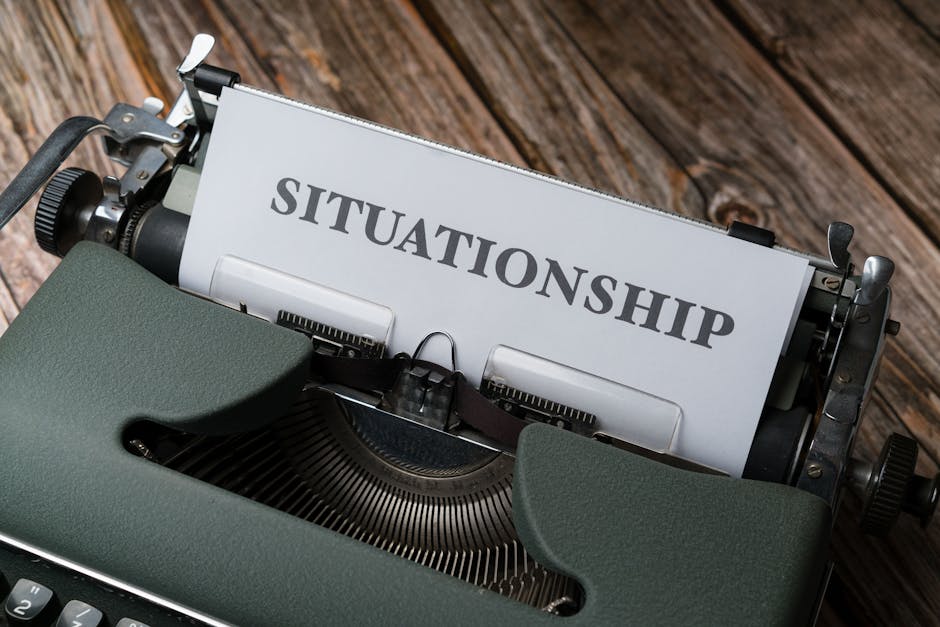Managing relationship expectations is like trying to balance on a tightrope—you need focus, patience, and a little bit of flexibility. In a world where romantic comedies and social media paint picture-perfect relationships, it’s easy to fall into the trap of expecting too much or the wrong things from your partner. But here’s the truth: unrealistic expectations can lead to frustration, disappointment, and even resentment.
If you’ve ever felt like your relationship isn’t measuring up to some invisible standard, keep reading. This guide will help you understand, assess, and adjust your expectations so you can build a healthier, happier connection.
Key Takeaways
- Relationship expectations are beliefs about how your partner should behave or how your relationship should function.
- Unrealistic expectations often stem from societal norms, past experiences, or personal insecurities.
- Regularly assessing and adjusting your expectations can prevent unnecessary conflict and improve communication.
- Healthy relationships thrive on acceptance, mutual respect, and open dialogue.
Understanding Relationship Expectations
Definition of Relationship Expectations
At their core, relationship expectations are the assumptions or beliefs you hold about how your partner should act, how conflicts should be resolved, or how love should be expressed. These expectations can be spoken or unspoken, realistic or completely out of touch with reality.
For example, you might expect your partner to always remember your anniversary or to text you back immediately. While some expectations are reasonable, others can set you up for disappointment.
Importance of Managing Expectations
Why does managing expectations matter? Because unmet expectations can create a breeding ground for misunderstandings and hurt feelings.
When you expect your partner to read your mind or fulfill every emotional need, you’re setting both of you up for failure. Managing expectations helps you focus on what’s truly important and fosters a sense of teamwork in the relationship.
Common Sources of Unrealistic Expectations
Unrealistic expectations often come from external influences like movies, books, or social media. They can also stem from past relationships or childhood experiences.
For instance, if you grew up watching fairy tales, you might expect your partner to sweep you off your feet every day. Or, if you’ve been hurt in the past, you might expect constant reassurance to feel secure.

Assessing Your Current Expectations
Step 1: Look at the Evidence
Identifying Unrealistic Expectations
Take a moment to reflect on your current expectations. Are they fair and achievable? Or are they rooted in fantasy?
For example, expecting your partner to never make mistakes is unrealistic. Everyone is human, and slip-ups are inevitable.
Evaluating the Reality of Your Assumptions
Ask yourself: Are my expectations based on reality or wishful thinking? If you’re unsure, try discussing them with your partner. Their perspective can help you see things more clearly.
Examining Your Expectations Regularly
Recognizing Patterns of Disappointment
If you often feel let down, it might be a sign that your expectations need adjusting. Pay attention to recurring conflicts or feelings of dissatisfaction.
Ensuring Expectations Are Realistic and Achievable
Set expectations that align with your partner’s abilities and your relationship’s dynamics. For example, instead of expecting grand romantic gestures, appreciate the small, meaningful ways your partner shows love.

Adjusting Your Expectations
Step 2: Allow Yourself to Grieve
Accepting Unmet Expectations
It’s okay to feel disappointed when your expectations aren’t met. Allow yourself to grieve the loss of what you hoped for. This emotional release can help you move forward.
Processing Emotions Healthily
Talk to a trusted friend, journal your feelings, or seek professional guidance if needed. Bottling up emotions will only make things worse.
Step 3: Chart a Course Forward
Setting Realistic Boundaries
Boundaries are essential for healthy relationships. They clarify what you need and what you’re willing to give. Learn more about setting and maintaining healthy boundaries to create a balanced dynamic.
Accepting Circumstances and Focusing on What You Can Control
You can’t control your partner’s actions, but you can control your reactions. Focus on what you can do to improve the relationship rather than dwelling on what’s missing.

Building Healthier Relationship Dynamics
Accepting Your Partner for Who They Are
Avoiding the Need to Change Your Partner
Trying to mold your partner into someone they’re not is a recipe for disaster. Instead, appreciate their unique qualities and quirks.
Embracing Individuality in the Relationship
Healthy relationships thrive when both partners feel free to be themselves. Celebrate your differences instead of viewing them as obstacles.
Stopping the Expectation of Fulfillment of All Needs
Understanding the Importance of Self-Fulfillment
Your partner can’t be your everything—and that’s okay. Pursue hobbies, friendships, and personal growth outside the relationship.
Avoiding Disappointment by Diversifying Emotional Support
Lean on a variety of people for emotional support. This reduces pressure on your partner and strengthens your overall support system.
For more tips on nurturing healthy relationships, check out this guide.

Cultivating a Balanced Approach to Giving and Receiving
Giving Without Expecting to Receive
Practicing Selfless Acts of Love
Love isn’t a transaction. Give because you want to, not because you expect something in return.
Building a More Fulfilling Relationship Experience
When both partners give freely, the relationship becomes more rewarding for both.
Breaking the People-Pleasing Pattern
Mastering the Art of Self-Advocacy
Speak up for your needs without fear of rejection. This builds mutual respect and understanding.
Encouraging Mutual Respect and Understanding
Healthy relationships are built on equality. Both partners should feel valued and heard.
Learn more about building healthy relationships to strengthen your connection.
Fostering Long-Term Relationship Growth
Changing What You Can in Relationship Dynamics
Identifying Areas for Improvement
No relationship is perfect. Identify areas where you and your partner can grow together.
Implementing Positive Changes Together
Work as a team to make changes that benefit both of you. This strengthens your bond and builds trust.
Maintaining Open Communication
Discussing Expectations Openly with Your Partner
Honest conversations about expectations can prevent misunderstandings. Share your thoughts and listen to your partner’s perspective.
Regularly Revisiting and Adjusting Expectations as Needed
Relationships evolve over time. Regularly check in with each other to ensure your expectations align with your current reality.
For more insights, explore how emotional regulation impacts relationship dynamics.

Managing relationship expectations isn’t about lowering your standards—it’s about aligning them with reality. By understanding, assessing, and adjusting your expectations, you can create a partnership that’s built on trust, respect, and mutual understanding.
Remember, relationships aren’t about perfection—they’re about progress. So, take a deep breath, let go of the fairy tale, and embrace the beautifully imperfect journey of love.
FAQ: Navigating and Managing Relationship Expectations with Clarity and Care
What are relationship expectations?
Relationship expectations are the beliefs or assumptions we hold about how our partner should behave, communicate, or contribute to the relationship. These expectations can stem from personal values, past experiences, or cultural influences and play a significant role in shaping the dynamics of a partnership.
Why is it important to manage expectations in a relationship?
Managing expectations is crucial because unmet or unrealistic expectations can lead to frustration, misunderstandings, and conflict. By addressing and aligning expectations, couples can foster trust, improve communication, and create a more harmonious and fulfilling relationship.
How can I identify my own relationship expectations?
To identify your expectations, reflect on your needs, values, and past experiences. Consider what you believe is essential in a relationship, such as communication styles, emotional support, or shared responsibilities. Journaling or discussing these thoughts with a trusted friend or therapist can also help clarify your expectations.
What are some common unrealistic expectations in relationships?
Common unrealistic expectations include believing your partner should always know what you’re thinking, expecting constant happiness, or assuming that love alone can solve all problems. Recognizing and adjusting these expectations can lead to healthier and more realistic relationship dynamics.
How can I communicate my expectations to my partner effectively?
Open and honest communication is key. Choose a calm moment to discuss your expectations, using ‘I’ statements to express your feelings and needs without blaming. For example, say ‘I feel supported when we spend quality time together’ instead of ‘You never spend time with me.’
What should I do if my partner’s expectations differ from mine?
If your expectations differ, approach the situation with empathy and a willingness to compromise. Listen to your partner’s perspective, express your own, and work together to find common ground or solutions that respect both of your needs.
How can I manage disappointment when expectations aren’t met?
Managing disappointment involves acknowledging your feelings, understanding the reasons behind unmet expectations, and adjusting your perspective. Focus on open communication and finding constructive ways to address the issue rather than dwelling on unmet desires.
Can unmet expectations lead to the end of a relationship?
Unmet expectations can strain a relationship, but they don’t necessarily mean the end. With effort, communication, and mutual understanding, couples can address and resolve issues, often emerging stronger. However, if expectations remain fundamentally incompatible, it may be necessary to reevaluate the relationship.
How can I set healthy expectations in a new relationship?
In a new relationship, focus on building trust and understanding before setting expectations. Be realistic, communicate openly about your needs and boundaries, and allow the relationship to evolve naturally. Avoid rushing into assumptions or comparisons with past relationships.
What role does self-awareness play in managing relationship expectations?
Self-awareness is essential for understanding your own needs, values, and triggers. By being mindful of your expectations and how they impact your relationship, you can communicate more effectively, avoid unnecessary conflicts, and foster a healthier connection with your partner.



